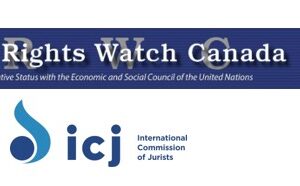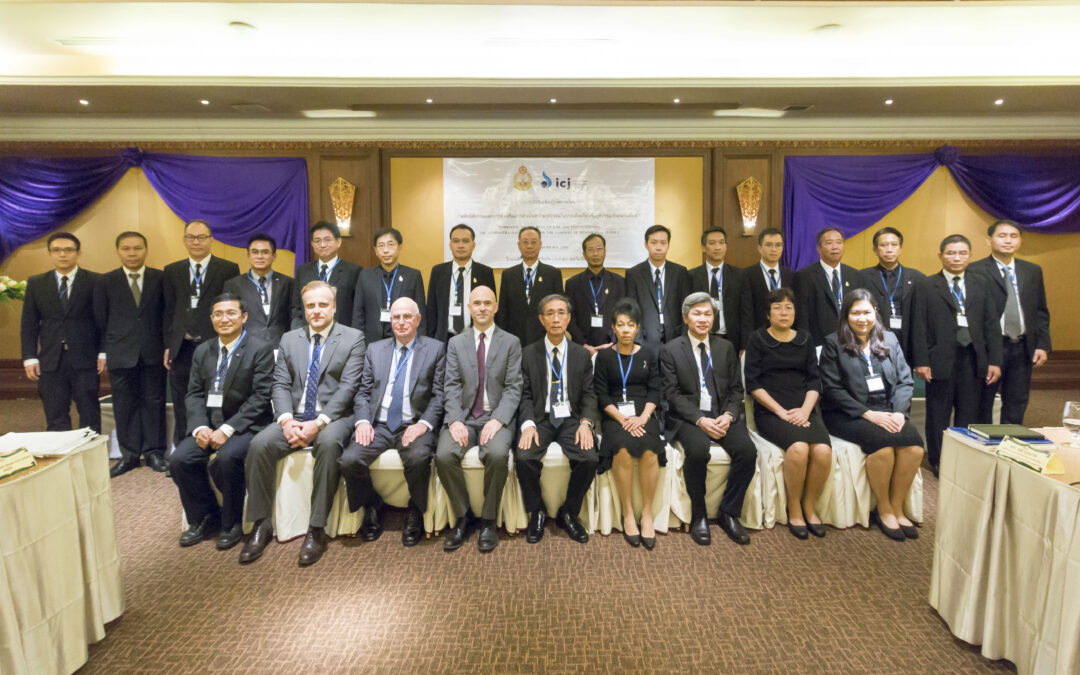
Sep 3, 2017 | News
On 2 and 3 September, the ICJ held a workshop on “the Rule of Law and Strengthening the Administration of Justice in the Context of Restorative Justice” for members of the Thai judiciary.
The workshop was held in Chiang Mai.
Twenty-two judges attended the workshop, with an observer from the Thailand Institute of Justice (TIJ).
The objective of the workshop was to discuss how to best apply international standards of restorative justice within Thailand’s justice system.
Restorative justice is based on the fundamental principle that criminal behavior not only violates the law, but also injures victims and the community.
A restorative process is any process in which the victim and the offender and, where appropriate, any other individuals or community members affected by a crime participate together actively in the resolution of matters arising from the crime, with the help of a facilitator.
Frederick Rawski, Regional Director of ICJ Asia and the Pacific, recognized in his opening statement that implementation of restorative justice, including constructive non-custodial sentencing and measures, could assist in combating the problem of overcrowding in detention facilities in the North of Thailand, particularly with respect to drug-dependent offenders.
The workshop made reference to the United Nations Declaration of Basic Principles on the Use of Restorative Justice Programmes in Criminal Matters, which was adopted by the United Nations Economic and Social Council in 2002.
Speakers at the Workshop included Chief Justice Somnuk Panich from Office of the Chief Justice Region V, who formally opened the workshop, Judge Dr. Dol Bunnag, Presiding Judge of Intellectual Property and International Trade Court, who summarized the landscape of restorative justice in Thailand, and Judge Sir David James Carruthers from New Zealand, an international expert on restorative justice in New Zealand.
ICJ’s Senior International Legal Adviser Kingsley Abbott moderated the two-day workshop.
The ICJ ended the workshop with a statement reiterating its commitment towards working with Thailand’s judiciary to strengthen the rule of law and administration of justice in Thailand.
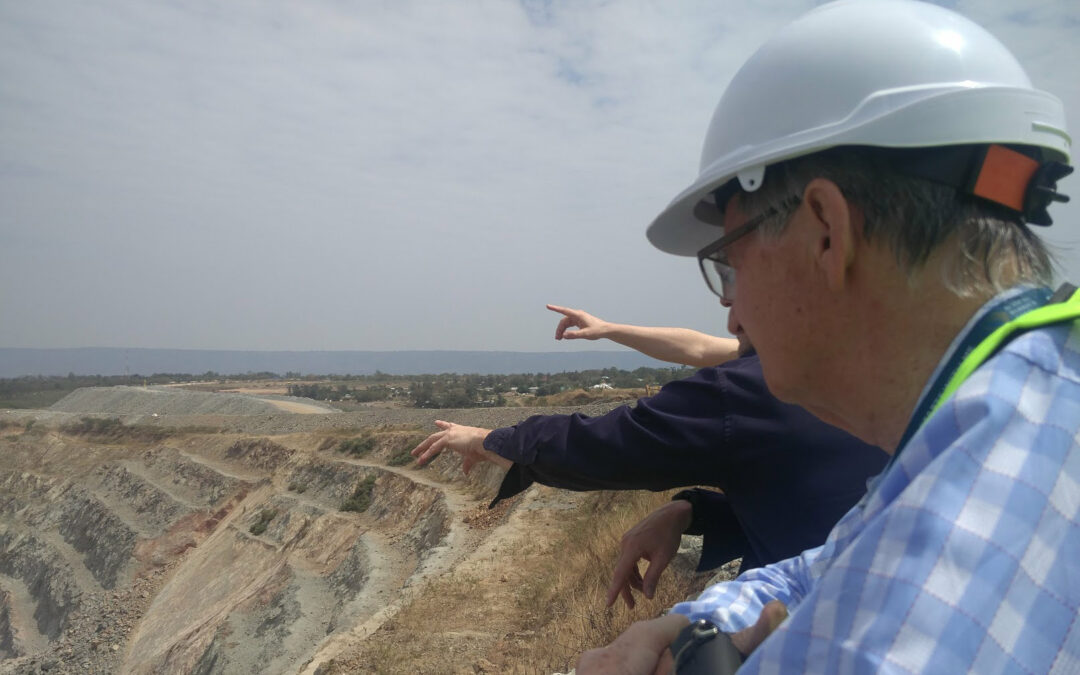
Sep 1, 2017 | Feature articles, News
Today, an ICJ delegation concluded a learning and assessment mission to the North Mara region and the North Mara Gold Mine Ltd, a subsidiary of Acacia Mining plc located in north-west Tanzania in the Tarime district of the Mara region.
The visit took place between 27 August and 1 September.
The objective of the ICJ Mission was to learn about the operation with a view to assessing the effectiveness of the North Mara Gold Mine’s operational grievance mechanism (OGM) in addressing complaints over alleged human rights concerns and abuses committed in connection with the mine’s operations.
The members of the ICJ delegation were: ICJ Commissioners Justice Ian Binnie and Alejandro Salinas, accompanied by Mr Carlos Lopez, ICJ Senior Legal Adviser, and Mrs Antonella Angelini, researcher.
Read the full story here: Tanzania-BHR mission North Mara-News-Features article-2017-ENG (in PDF)
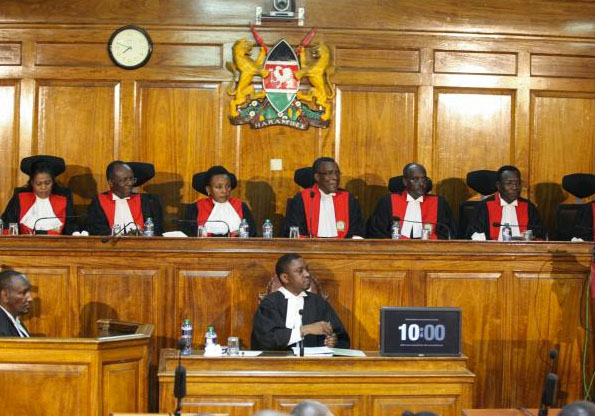
Sep 1, 2017 | News
Today the Supreme Court of Kenya took the unprecedented step of voiding the presidential elections held on 8 August 2017 citing the failure by the Independent Electoral and Boundaries Commission (IEBC) to adhere to constitutionally mandated processes.
The ICJ commends the Supreme Court of Kenya for adjudication of a sensitive case at a high professional standards amidst a charged political atmosphere.
The ICJ in partnership with the Africa Judges and Jurists Forum (AJJF) sent a mission of three distinguished judges to observe the proceedings during the presidential petition in Kenya.
The delegation consisted of Retired Chief Justice Earnest Sakala (Zambia), Justice Dingake (Botswana) and Justice Chinhengo (Zimbabwe).
The mission’s observations will be publicized in due course.
Kenya held national elections on 8 August 2017 administered by the IEBC.
The IEBC subsequently announced that Uhuru Kenyatta had won the elections with a 54% majority.
The opposition National Super Alliance Coalition led by Raila Odinga filed an election petition alleging serious irregularities in the tabulation and transmission of the results of the elections and asking the court to nullify the results and order fresh elections.
The Supreme Court heard the election petitition culminating in the decision that was handed down today.
According to the observers, the court conducted the hearing in a manner consistent with the rule of law and that adhered to the Kenyan Constitution and international principles of a fair trial.
The Court gave acted fully as a competent, independent and impartial judicial body.
“The decision taken by the Supreme Court today is precedent setting. It places a cost on the election management body for apparently failing to adhere to constitutional imperatives and the normative framework governing the conduct of elections,” said Arnold Tsunga, Africa Director of the ICJ.
“Elections are a high stakes subject in Kenya, as elsewhere in the world. Previous elections have shown that violence and multiple human rights violations increase during the election period. We therefore encourage the political leaders in Kenya to accept the court’s verdict and to encourage their supporters to exercise maximum restraint and tolerance as the country braces itself for fresh elections,” he added.
Finally the ICJ urges the authorities in Kenya and the IEBC to quickly comply with and implement the court’s judgement.
Contact
Arnold Tsunga, ICJ Director for Africa, t: +27716405926 ; e: arnold.tsunga@icj.org
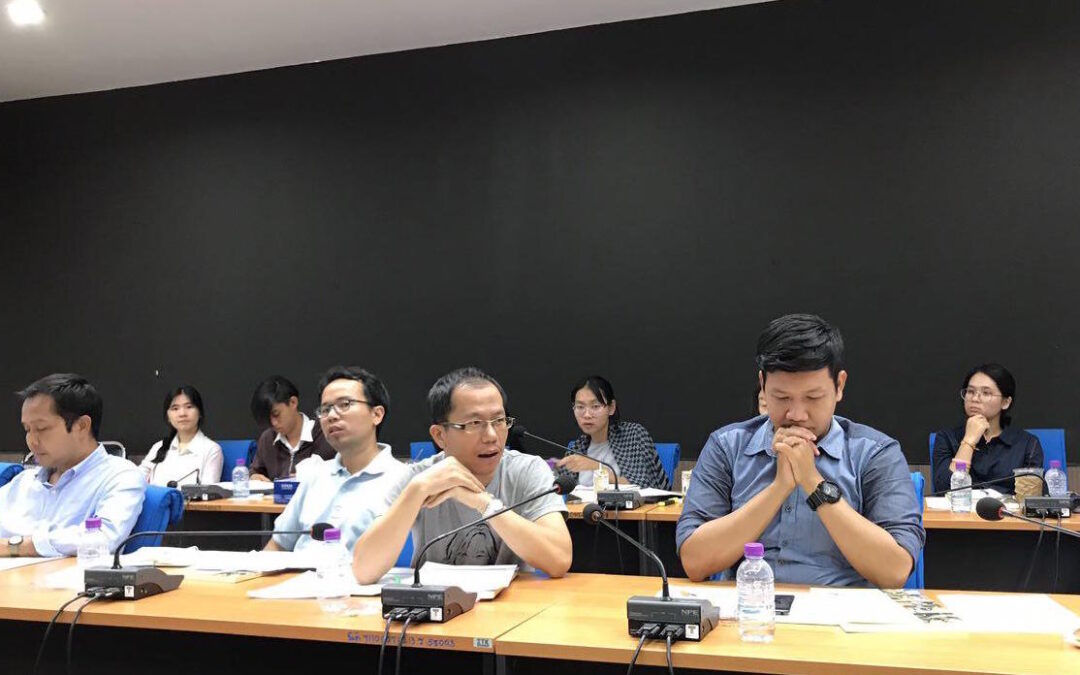
Sep 1, 2017 | News
On 1 September, the ICJ, in collaboration with Chiang Mai University’s Faculty of Law and Chiang Mai University’s Center for Ethnic Studies and Development under its Faculty of Social Science, conducted a workshop on how effectively to conduct trial observation.
Participants in the Workshop included undergraduate and postgraduate students and lecturers from Chiang Mai University, lawyers and representatives from Thai civil society organizations.
The workshop was held at Chiang Mai University’s Faculty of Law campus.
The objective of the workshop was to provide participants with an overview of international law and standards governing right to a fair trial and due process in the administration of criminal justice.
The workshop used the ICJ’s Practitioners Guide No. 5, the Trial Observation Manual for Criminal Proceedings, as the basis of training.
The workshop trained participants on practical preparation techniques before undertaking trial observations, critical elements of trial observations, drafting of trial observation reports, general international legal standards governing fair trials, international legal standards applicable to arrest and pre-trial detention in criminal proceedings and international legal standards applicable to trial proceedings.
The speakers at the workshop were Kingsley Abbott, ICJ Senior International Legal Adviser, Southeast Asia and Sanhawan Srisod, ICJ Associate National Legal Adviser, Thailand.
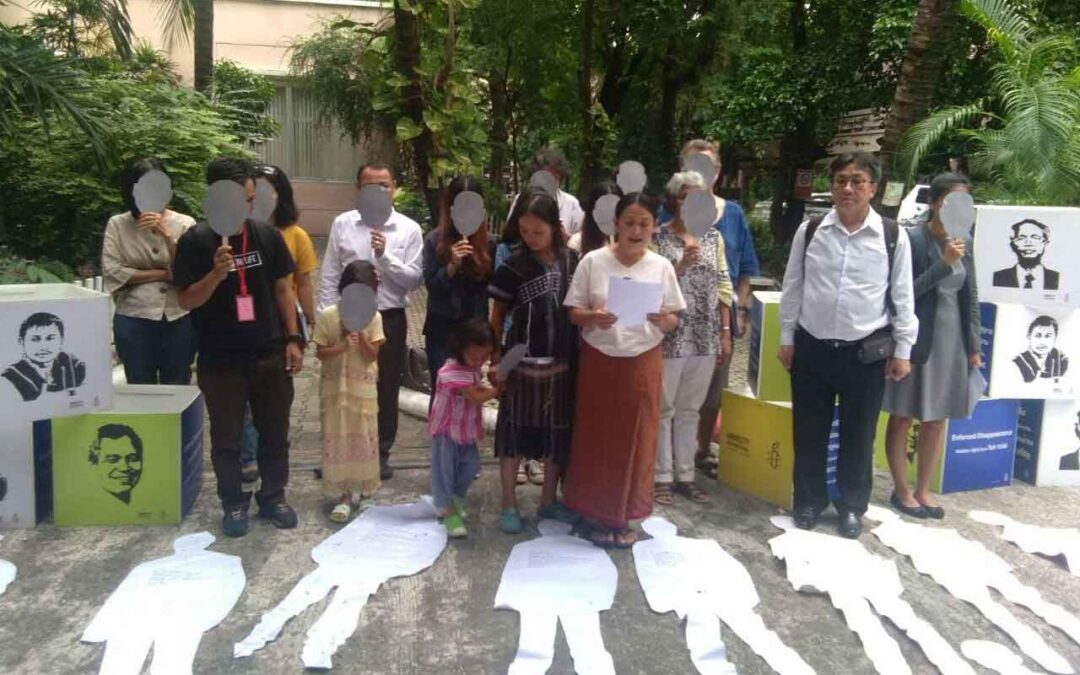
Aug 30, 2017 | News
On 30 August, the ICJ co-hosted an event in Bangkok, Thailand, named “International Day of the Victims of Enforced Disappearance: Human Rights Defenders & the Disappeared Justice”.
The event began with opening remarks by South-East Asia’s Regional Representative of the United Nations Office of the High Commissioner for Human Rights (OHCHR) Cynthia Veliko.
Thereafter, Kingsley Abbott, ICJ Senior International Legal Adviser, spoke in a panel discussion about enforced disappearances in Thailand, highlighting the need for Thailand to comply with its human rights obligations under international law.
This panel discussion also included Ms. Oranuch Phonpinyo, Community Representative, forensics expert Dr. Pornthip Rojanasunan and former National Human Rights Commissioner Dr. Niran Pitakwatchara.
In a second panel discussion held during the event, speakers included Ms. Phinnapha Phrueksaphan, Victim Representative, Ms. Angkhana Neelapaijit, National Human Rights Commissioner and Victim Representative, Ms. Nareeluc Pairchaiyapoom from Thailand’s Ministry of Justice and prominent human rights lawyer Mr. Somchai Homlaor.
The event focused on the lack of progress in Thailand with regard to investigating cases of apparent enforced disappearance and called for the Royal Thai government to amend and pass legislation criminalizing torture, ill-treatment and enforced disappearance without further delay.
Thailand is a State party to the International Covenant on Civil and Political Rights (ICCPR), the Convention against Torture and other Cruel, Inhuman or Degrading Treatment or Punishment (CAT) and has signed, but not yet ratified, the International Convention for the Protection of All Persons from Enforced Disappearance (ICPPED).
The other organizers of the event were OHCHR’s South-East Asia Regional Office, the Cross Cultural Foundation (CrCF), Human Rights Lawyers Association (HRLA), the Esaan Land Reform Network, Amnesty International Thailand, Thailand’s Ministry of Justice and the Association for the Prevention of Torture (APT).
Copies of an open letter sent by the ICJ and other human rights groups to the Royal Thai government on 30 August were distributed to the event’s participants.
Contact
Kingsley Abbott, ICJ Senior International Legal Adviser for Southeast Asia, kingsley.abbott(a)icj.org
See the full open letter here in English and Thai
Read also
Ten Years Without Truth: Somchai Neelapaijit and Enforced Disappearances in Thailand








